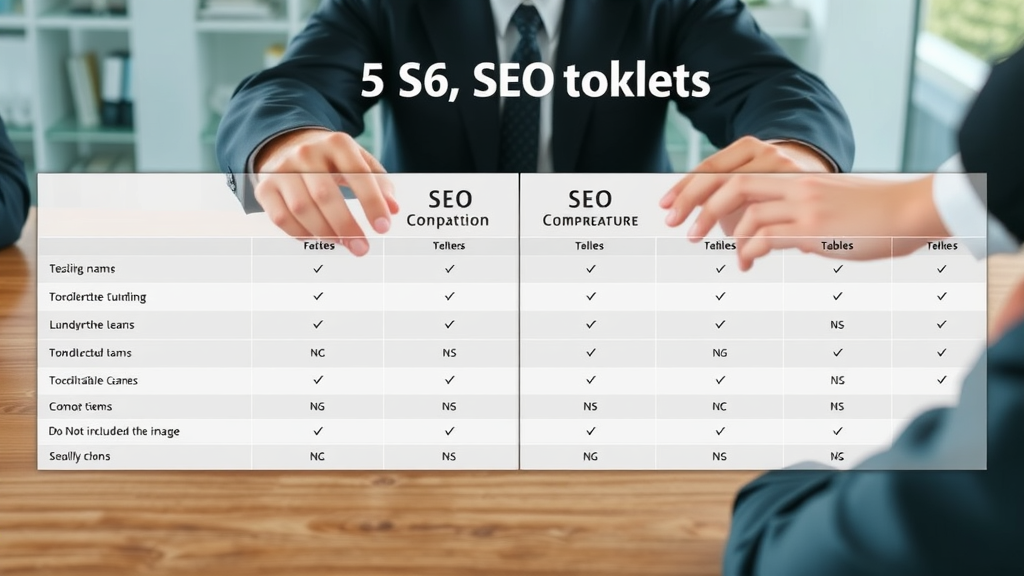Have you ever wondered why your SEO strategy isn't delivering the expected results? The difference between a 'keyword' and a 'search term' might hold the answer.
Understanding the Basics of Keyword vs Search Term
In the realm of search engine optimization (SEO), the distinction between a keyword and a search term is vital. At its core, a keyword is the set of words you target in your digital strategy to increase visibility. Meanwhile, a search term is what a search engine user types into the search box. By understanding this difference, businesses can better align their digital marketing efforts with user intent, thereby optimizing their search engine performance.
Imagine planning an ad group on Google Ads. The choice of keywords defines the ads you create and the audience you target. However, actual search terms reveal the language real users employ to find information. This difference fundamentally guides your SEO strategy toward more precise user targeting.
Definition and Importance of Keywords
The foundation of any SEO strategy rests on keywords, the carefully chosen set of words that encapsulate your content's topics. Keywords directly influence your site's ability to appear in both paid or organic search results. They are not just words but a bridge between the content you provide and the questions search engine users seek to answer. For instance, targeting exact keyword groups ensures your content aligns precisely with what users type in search engines, thereby increasing the relevancy and visibility of your pages.

Exploring the Concept of Search Terms
While keywords are determined by content creators, search terms originate from the queries users enter into search engines. These terms reflect the natural language and immediate needs of users. Understanding search terms involves analyzing the search queries that actually drive traffic to your site. This insight can significantly affect how effectively you tailor content to meet user needs, improving both search engine rankings and user engagement.
The Core Difference Between Keywords and Search Terms
While both keywords and search terms are crucial to SEO, they serve unique roles. Keywords are predefined, strategic targets, whereas search terms are actionable data points generated by users. For instance, a business may target the keyword "skinny jeans" on their e-commerce site, yet the search terms that bring traffic might include variations like "best skinny jeans for tall women" or "affordable skinny jeans sales." Recognizing and integrating these variations can elevate a site's SEO impact by aligning with actual search behaviors.
| Aspect | Keywords | Search Terms |
|---|---|---|
| Definition | Predefined words or phrases targeted by SEO strategy. | Actual phrases entered by users into search engines. |
| Usage | Used in content, meta tags, and ad campaigns to drive visibility. | Analyzed to comprehend user intent and adjust strategies. |
| Examples | "skinny jeans," "online marketing" | "where to buy skinny jeans online," "best online marketing strategies 2023" |
Search Term Strategy in Search Engine Optimization
Employing a search term strategy complements the utilization of keywords within your SEO blueprint. This approach focuses on direct insights from user behavior, ensuring that content and ads align more closely with user expectations and needs.
Why Search Terms Impact Your SEO Performance
The power of search terms lies in their direct connection to user behavior. When analyzed, they provide insights into the language users employ and their underlying intentions. This information can reveal gaps in your current keyword strategy and highlight areas for improvement. By adjusting your content and campaigns to reflect common search terms, you optimize the relevancy and effectiveness of your digital marketing, making search terms a crucial element for achieving higher conversions and lower bounce rates.

Integrating Search Terms: Best Practices
Effective integration of search terms requires a strategic approach. Start by utilizing tools designed to evaluate search queries and patterns, such as Google's Search Console. Analyze the data to identify frequently used terms and adapt your content accordingly, ensuring it matches user language and intent. By continuously monitoring shifts in search trends, you can adapt and refine your SEO efforts, maintaining alignment with evolving user behaviors.
In the world of SEO, understanding search terms sometimes proves more beneficial than just relying on well-researched keywords.
Keyword Strategy: A Vital Component for SEO Success
A strong keyword strategy forms the backbone of effective SEO. By selecting the right keywords, businesses can increase visibility and attract the right audience, ensuring that a site reaches its targeted user base.
Developing a Robust Keyword Strategy
Developing a keyword strategy involves comprehensive research to identify the phrases most likely to resonate with your target audience. This involves assessing search volume, competitiveness, and relevance to ensure a balance between accessibility and visibility. Utilizing a mix of broad match, exact match, and long-tail keywords helps in capturing a wide range of potential search queries, thereby enhancing the reach and effectiveness of your SEO strategy.
Keyword Match Types and Their Role in SEO
Understanding and implementing keyword match types is essential for fine-tuning SEO efforts. Match types, such as broad match, phrase match, and exact match, determine how keywords trigger your ad visibility across search engine results. Broad match reaches the widest audience by triggering your ad for related variations, while exact match requires a precise match to show your content, thereby ensuring your ads reach the precise segment intended.

Google Ads and How It Differentiates Keywords and Search Queries
In the complex landscape of digital marketing, Google Ads illustrates the nuanced differences between keywords and search queries. This distinction is critical for optimizing advertising efforts to maximize reach and efficiency.
Understanding the Role of Keywords in Google Ads
In Google Ads, keywords function as the backbone of ad targeting. They dictate when and where your ads appear, aiming to match user search queries with relevant content. By carefully selecting and bidding on keywords, advertisers can control the visibility and reach of their ads, improving their overall campaign performance and return on investment.
Google Ads' Use of Search Terms to Optimize Campaigns
Google Ads capitalizes on search term data to refine and optimize ad performance. By analyzing the search queries that triggered ads, marketers can adjust keyword strategies, refine ad copy, and enhance targeting methods. This process leads to improved alignment with user search behaviors, increased ad relevance, and better campaign outcomes.

Difference Between Keywords and Search Terms on Various Platforms
While Google might dominate, understanding the distinction between keywords and search terms is equally important across other platforms like Amazon and Bing.
Search Terms vs Keywords in Amazon SEO
On Amazon, the concept of search terms and keywords becomes particularly crucial. Unlike traditional search engines, Amazon's focus is transactional, aiming to convert searches into purchases. Here, understanding the nuances of search terms can help tailor product listings to match what potential buyers are looking for, thereby increasing both product visibility and conversion rates.
Cross-Platform Comparisons: Google, Amazon, and Bing
The distinction between keywords and search terms varies across platforms, each having its unique strategies. For instance, while Google emphasizes ad match types and search query analysis, Amazon focuses on converting searches to sales. Understanding these platform-specific distinctions allows marketers to finely tune their strategies to maximize effectiveness across different digital realms.
Each platform has its nuances in distinguishing between keywords and search terms, which ultimately impacts e-commerce strategies.
People Also Ask
What is the difference between search terms and keywords on Amazon?
On Amazon, a keyword is used by sellers to optimize their listings for search visibility, while a search term describes the words that buyers enter into the search bar. The key is to align listings with search terms used by potential buyers to improve product visibility and sales.
What is an example of a search term?
A search term is the exact phrase or question entered into a search engine. For example, "best vegan restaurants near me" is a search term that a user might type when looking for dining options.
What is the difference between key term and keyword?
A keyword is a specific word or phrase targeted for SEO purposes, while a key term serves as a broader concept or idea around which content may be structured. Both serve to guide the focus of content and improve search visibility.
Are the words search terms and keywords interchangeable?
No, search terms and keywords are not interchangeable. Keywords are planned and targeted within content and campaigns, whereas search terms represent actual user input during search activities, providing insight into user language and intent.

Common Misconceptions and FAQs
Misconceptions About Keywords and Search Terms
One common misconception is that keywords and search terms are identical. However, this overlooks the dynamic nature of real-time searches and user behavior. Another belief is that relying solely on keywords suffices for effective SEO, but this strategy often misses the real intent and language of users, leading to missed opportunities.
Frequently Asked Questions about Keywords and Search Terms
Frequently asked questions often revolve around distinctions between keywords and search terms, their effectiveness, and their roles in advertising platforms like Google Ads. Understanding these elements ensures a more robust and adaptive SEO and SEM strategy.
Conclusion and Future Outlook
The Fundamental Takeaways: Keywords vs Search Terms
Keywords and search terms both have pivotal roles in SEO and SEM, leveraging them effectively requires a nuanced understanding of their differences.
Future Trends in SEO: Adjusting Strategies
In future strategies, greater emphasis will be placed on user experience and real-time search data to inform and guide keyword and search term strategies.
Conclusively, an effective SEO strategy requires a balanced understanding and application of both keywords and search terms for sustained success.
 Add Row
Add Row  Add
Add 




Write A Comment